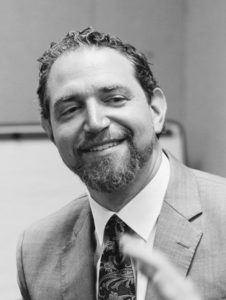A d’var Torah for Parshat Re’eh
No miracles this week.
Just another Torah portion in Deuteronomy. The days of the big fancy parshiot are over. No 90-year-old’s miracle births this week. No walls of water, no giant holes opening up to swallow the rebels. Just a list of laws, as the Torah heads towards its conclusion.
In the Jewish calendar, in fact, we seem to be running out the clock. Even the drama of waiting for, and wailing with, Tisha B’Av has passed us by. August is the month for counting days until — until the end of vacation, until the end of camp, until the end of the summer.
And in the parshah too, parashat Re’eh, Moses is counting. Counting the days until his death. Counting the moments he has left, parceling out the remaining minutes in his collective pep talk. Not much time left for the old man.
Sign up to receive Torah from T’ruah in your inbox each week!
He’s hurrying now, shoehorning in all the laws he wants to repeat, the laws he forgot to remember and just remembered he forgot. Here’s the appropriate places for worship. Oh and don’t forget the kosher laws. Hey did I tell you when the big holidays happen?
And also here’s what you do when a false prophet tries to tempt you.
And yet, when Moses gets to a certain set of laws, sublime and eternal, the laws about helping the poor, he slows down.
Moses tells his people that they are never to close their hands to the poor. Rather, in Deuteronomy 15:7, Moses commands his people to open their hands, in Hebrew saying patoach tiftach. It’s a grammatical form called the “infinitive absolute,” which repeats the verb twice. Think of it as “really folks — I mean it — really open your hand.” Or as my teacher Rabbi Peg Kershenbaum taught me, “openly open your hand.”
It’s not the only time Moses uses this repeated verb form in this text. In the same verse, he says ha’avet ta’avitenu. “Lendingly lend” the poor what they need. And then, in verse 10: naton titen. “Givingly give” to them. And again, in verse 11: patoach tiftach. Another “openly open” your hand. A doubling of a doubling.
And more: In verse 9, Moses calls even the very thought that we would refuse help to the poor a d’var im l’vavcha bliya’al. “A worthless thing in your heart.”
We have to worry not just about actions, but thoughts? Moses, do you really have time to be telling us what to think?
Why does the dying Moses spend so much time on this discussion? The reason, it turns out, is that the very soul of the people is at stake. In the Talmud, in Ketubot 68a, Rabbi Joshua bar Korcha teaches that “anyone who shuts their eye to tzedakah is like one who worships idols.” How can Rabbi Joshua make such a serious charge? He brings proof from this parshah itself.
“[In Deuteronomy 15] it is written, ‘beware of a worthless thought in your heart’… [while in Deuteronomy 13] it is written, ‘worthless men have gone out.’” The b’nai bliya’al. The worthless men. The false prophets that Moses warned us about.
Rabbi Joshua continues: “As there [in the case of false prophets, the sin is] idolatry, so here [in refusing to help the poor, the sin is] also idolatry.”
Today’s false prophets of greed and contempt claim that the suffering of the poor is a moral failure — but not a moral failure of a society that refuses to share its inconceivable wealth. Rather, they place the blame for the suffering of the poor at the feet of the poor themselves, blaming them for the crime of being poor in the United States. A land in which the minimum wage remains an absurd $7.25 an hour. A land in which the National Low Income Housing Coalition reports that no one making minimum wage can afford a two-bedroom in any US state without being “rent burdened.” A land which United for a Fair Economy reports has “268 billionaires and 34.5 million people living below the poverty line.” A land that still views healthcare as a privilege, not a human right. A land that takes the cheapest of labor from undocumented immigrants and then rewards them by destroying their families.
No wonder Moses takes his time discussing the sins of false economic prophets. The genuine prophet sees the danger when wealth is idolized, when hoarding wealth is considered a sacrament.
With parshat Re’eh, we enter the month of Elul. The month of acknowledgement. The month of reconciliation. The month of judgment.
We who have little merit don’t dare count on miracles to save us. Instead, we are wise to heed the words of our greatest prophet.
Patoach tiftach. May we openly open. May we open ourselves up, open wide, to the possibility of living in a holy and ethical land, one integrating personal need and private labor with the public good.
And as we do so, may it be an opening to the gates of redemption of our land, our hearts, and our souls.
Rabbi Michael Rothbaum serves Congregation Beth Elohim in Acton, Massachusetts. He lives in Maynard with his husband, Yiddish singer Anthony Mordechai Tzvi Russell.


